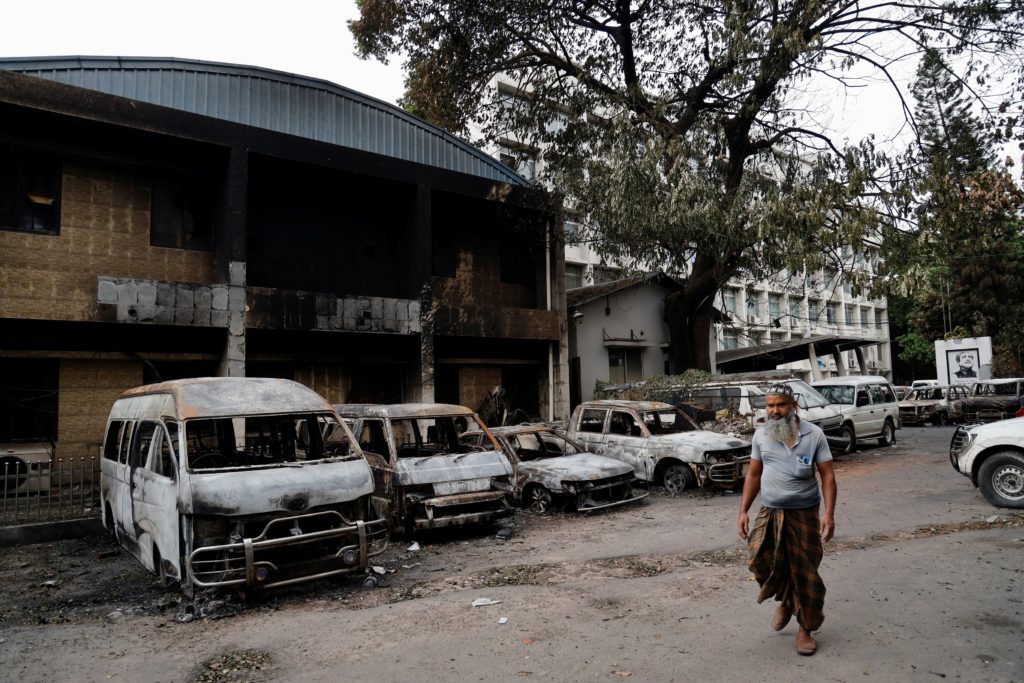Dhaka: Supreme Court reduces quotas, stops protests (for the time being)
The percentage of posts in the public sector reserved for descendants of combatants in the war of independence was reduced from 30% to 5%. The curfew has been partly relaxed, but students are demanding the release of leaders and the resignation of some ministers. Unlike in the past, today the discontent with the government led by PM Hasina is more generalised.
Dhaka (AsiaNews/Agencies) - A tense calm reigns in Bangladesh this morning after the Supreme Court yesterday ruled a reduction in the quotas reserved for certain categories of people in the public sector. In particular, the percentage dedicated to the descendants of ‘freedom fighters’ (those who took part in Bangladesh's war of independence from Pakistan in 1971) was reduced from 30% to 5%, and a further 2% will be used to protect members of minorities and people with disabilities. In this way, the reserved quotas will be only 7 per cent of civil servants compared to 56 per cent previously.
This morning there were no clashes and the curfew was partly lifted, but the university students who took to the streets in recent days demanded from the government the release of the protest leaders who were arrested, the reopening of the universities, closed since 17 July, and the resignation of some ministers, setting a 48-hour deadline for the government to act on these demands.
Although Bangladesh has undergone incredible economic development since 2009, when Prime Minister Sheikh Hasina first came to power, growth has slowed down in the last two years and youth unemployment is very high, with an estimated 18 million young people (out of a population of 170 million) looking for work. It is mainly university graduates who have difficulty finding employment and government jobs, offering a high and stable salary, are therefore highly coveted.
As in other South Asian countries, the quota system is supposed to protect the socially and economically disadvantaged sections of the population, which is why some seats are reserved for women, the disabled and ethnic and religious minorities.
The quotas reserved for the descendants of the so-called freedom fighters, on the other hand, had a political significance because many of the members of the current political elite belong to that generation and are politically close to the Awami League, the party from which Hasina comes, herself the daughter of Sheikh Mujibur Rahman, the founding father and first prime minister of Bangladesh after independence. According to commentators, therefore, the quotas were used by the Awami League to ‘reward its supporters’ and as a ‘ploy to consolidate the party's influence in the future administration’.
The system had been abolished in 2018 (again following protests by university students) but was then reintroduced at the end of June this year by a lower court, triggering a new wave of protests, which quickly turned from demonstrations against what is perceived to be an unfair system into anti-government protests. Over 100 people died in the clashes, but the Internet blockade is still in place, making it impossible to establish the exact number. Local sources have declared 146 and 127 dead so far.
Unlike in 2018, hostility towards the government today seems to be cross-class. Students speak of Hasina as a ‘dictator’ and an ‘autocrat’. Re-elected in January for a fourth term, the premier has long been accused of taking an authoritarian turn in her government, which is seen by the population as increasingly corrupt and incapable of managing the economy and the growing push of young people to migrate abroad. A sentiment ridden by the opposition, represented by the Bengali Nationalist Party, for now still an acephalous movement as the party's leader, Khaleda Zia, has been in jail since 2018 for corruption crimes.
20/07/2024 17:02
23/07/2024 19:17
12/07/2024 13:46
02/08/2024 13:28







.png)










